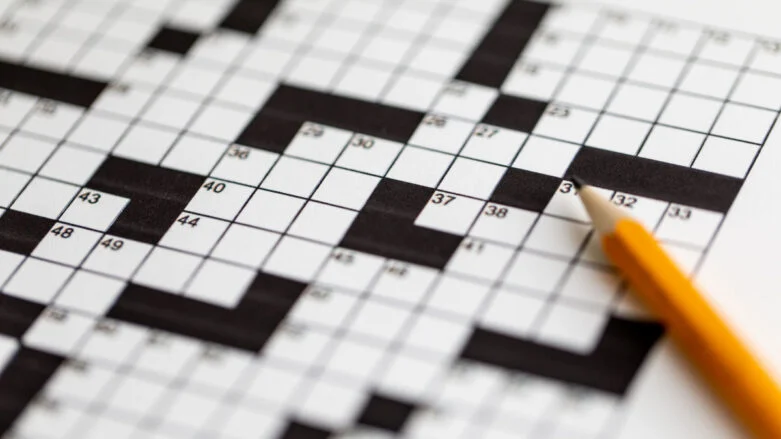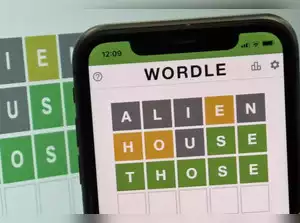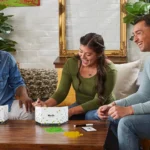Unveiling the Charm of NYT Wordle: A Unique Word Game Experience

Have you ever found yourself craving a brain-teasing yet delightful word game to kickstart your day? Look no further than the NYT Wordle – a captivating word puzzle that has taken the online gaming community by storm. In this article, we’ll dive into the intricacies of this linguistic challenge, exploring its origin, gameplay, and why it has become a beloved pastime for word enthusiasts.

Origin and Evolution:
The NYT Wordle, short for New York Times Wordle, emerged as a brainchild of linguistic brilliance, combining strategy and vocabulary. Its roots can be traced back to traditional word-guessing games, but what sets it apart is its seamless integration into the digital realm. The game has evolved over time, keeping players engaged with its dynamic word selection and evolving difficulty levels.
The Gameplay Unveiled:
At its core, the gameplay is refreshingly simple yet remarkably addictive. Players are presented with five chances to guess a secret five-letter word. With each attempt, the puzzle provides valuable feedback, indicating the correctness of the guessed letters. The challenge lies in decoding the hidden word with strategic guesses and deductive reasoning.
The NYT Wordle Experience:
What makes the NYT Wordle stand out is its commitment to an eco-friendly gaming experience. The interface is user-friendly, with an aesthetically pleasing design that enhances the overall enjoyment. The game’s simplicity doesn’t compromise its depth, making it accessible to players of all ages and linguistic backgrounds.
Unique Features that Spell Fun:
Unlike other word games, the NYT Wordle introduces an element of suspense, as players aim to unveil the mystery word within the limited attempts. This element of surprise keeps the game dynamic and ensures that each round is a fresh challenge. The satisfaction of cracking the code is unparalleled, creating a sense of accomplishment that keeps players coming back for more.
Wordle Etiquette:
As with any online game, the NYT Wordle community has developed its own set of unwritten rules and etiquettes. From avoiding obscure words to embracing the spirit of friendly competition, understanding these nuances enhances the overall gaming experience and fosters a sense of camaraderie among players.
Wordle for All:
One of the most remarkable aspects of NYT Wordle is its inclusivity. Whether you’re a seasoned wordsmith or someone looking to expand their vocabulary, the game accommodates players of all skill levels. Its universal appeal lies in the simplicity of its concept coupled with the challenge it presents, making it a versatile and engaging pastime.
Conclusion:
In conclusion, NYT Wordle stands as a testament to the timeless allure of word games. Its unique blend of simplicity, strategy, and suspense has elevated it to a position of prominence in the online gaming world. Whether you’re a casual player seeking a mental workout or a word aficionado in search of a new challenge, NYT Wordle offers an experience that is both enriching and entertaining. Give it a try, and unlock the joy of deciphering words in this digital linguistic playground.
1. The NYT Wordle Craze: A Social Phenomenon Unveiled
The widespread popularity of NYT Wordle has transcended mere gameplay, transforming into a social phenomenon. Friends and family alike gather online, sharing triumphs and defeats, fostering a sense of community. The simplicity of the game serves as a social equalizer, bridging gaps and connecting players from various walks of life. Its appeal extends beyond the screen, creating a shared experience that goes beyond the realm of a typical word puzzle.
2. The Art of Strategic Guessing: Mastering the Wordle Mindset
Central to the NYT Wordle experience is the art of strategic guessing. Players quickly learn that each attempt is a crucial step in unraveling the mystery word. Balancing risk and reward becomes second nature as one navigates through the intricate dance of deduction. The game subtly hones cognitive skills, encouraging players to think critically and strategically. It’s not just about finding words; it’s about mastering the Wordle mindset and enjoying the journey of linguistic discovery.
3. The Language Evolution: Wordle’s Impact on Vocabulary
As players engage with NYT Wordle, they unknowingly contribute to the evolution of their own vocabulary. The game exposes them to a diverse range of words and challenges, prompting a continuous learning experience. Wordle becomes a catalyst for linguistic growth, expanding the mental lexicon with each new puzzle. This subtle educational aspect adds a layer of depth to the gameplay, making it not just a pastime but a journey of language enrichment.
4. The Timeless Allure of Word Games: A Psychological Perspective
Delving into the psychology behind word games, NYT Wordle taps into the innate human fascination with language and puzzles. The game’s ability to captivate players, providing both mental stimulation and relaxation, speaks to its timeless allure. In a fast-paced world, where attention spans are fleeting, Wordle offers a unique blend of challenge and satisfaction, creating a psychological haven for those seeking a mindful escape.
5. NYT Wordle and Mental Well-being: A Therapeutic Distraction
Beyond its entertainment value, NYT Wordle serves as a therapeutic distraction in the midst of daily stressors. The focused engagement required for word-guessing provides a mental break, allowing players to momentarily shift their attention and recharge. The game’s immersive nature encourages mindfulness, fostering a positive impact on mental well-being. It stands as a testament to the potential of well-designed games to contribute to moments of relaxation and mental rejuvenation.
6. The Global Wordle Language: Breaking Cultural Barriers
NYT Wordle’s global reach has turned it into a language of its own, breaking cultural barriers and uniting players worldwide. Language becomes the universal medium through which individuals connect, transcending geographical and cultural differences. The game’s simplicity acts as a common ground, fostering a sense of camaraderie among players who may otherwise never cross paths. In the world of NYT Wordle, linguistic diversity becomes a source of celebration, creating a harmonious digital space for players to share the joy of words.













